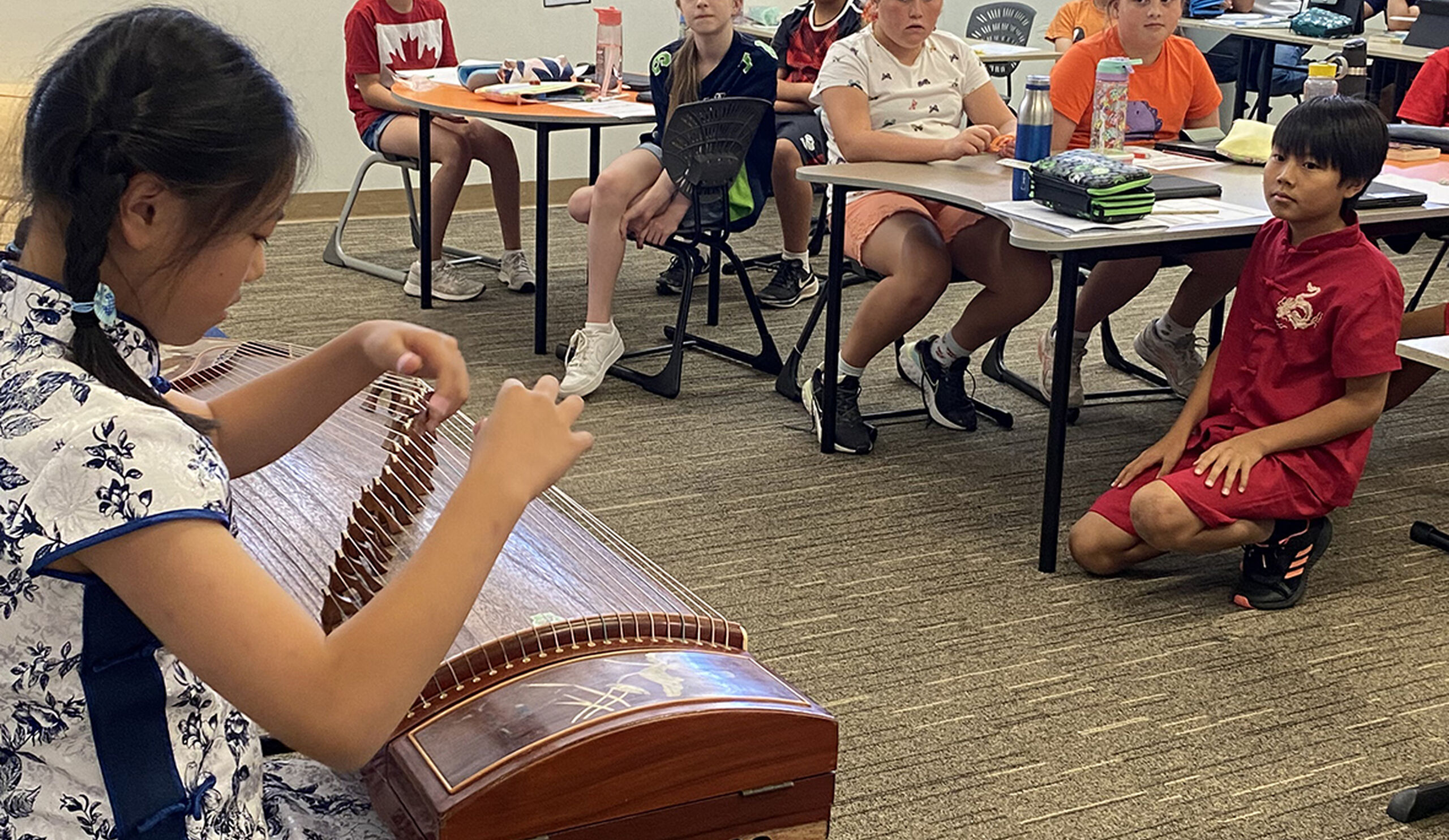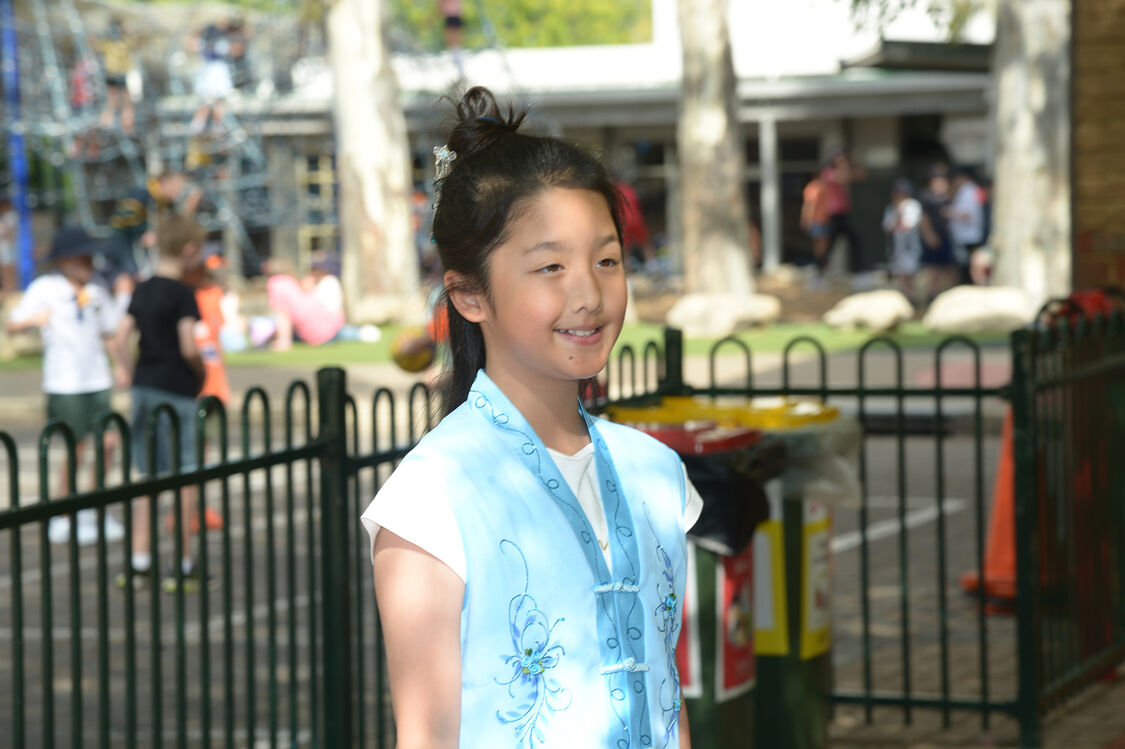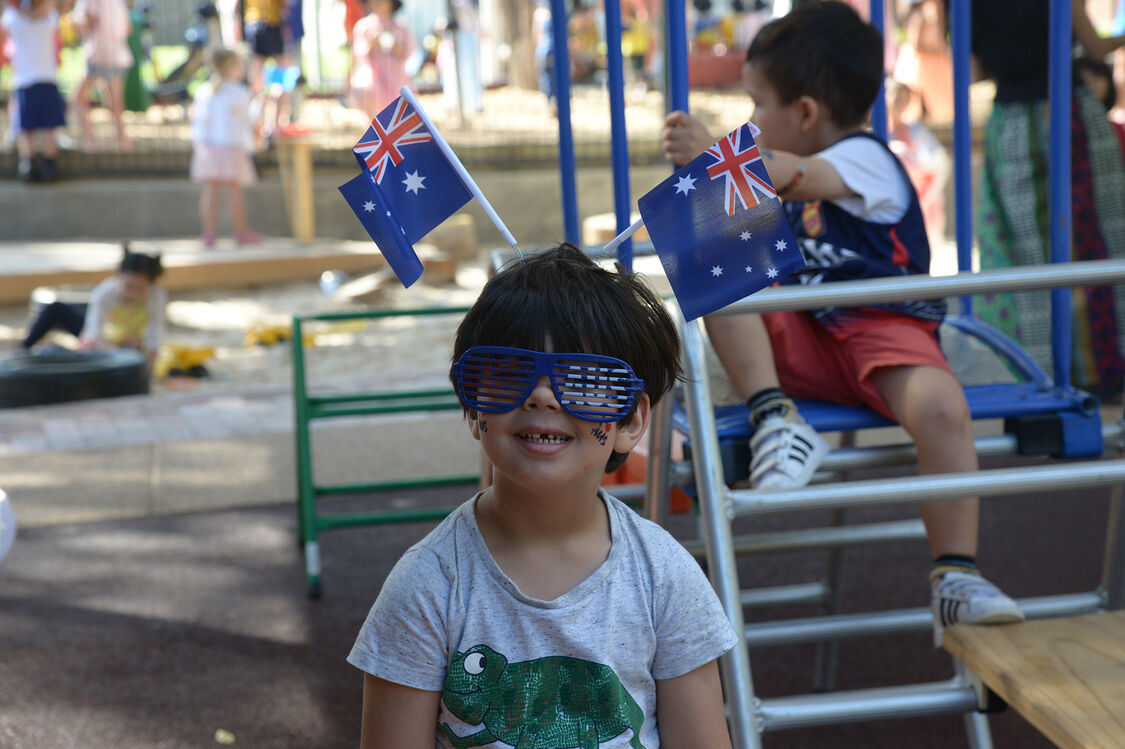28 June 2021
Underpinned by relationships of trust, it is the work of our teachers to create learning environments that reveal the rich diversity of our student body, and to use this to build unity.
Each year Harmony Day enables us to discover something new about our students, highlighting their insatiable quest for meaning and their emerging desire to understand themselves.
‘In Year 6 we were studying a How We Express Ourselves unit, so we asked our students to share a part of their culture on Harmony Day that represented ‘beauty’. We were exposed to an incredible collection of multicultural traditions alive in the homes of our students today. From tea drinking rituals to water puppets and the most remarkable piece of music played on an ancient Chinese instrument called the guzheng, our students were awe-inspired discovering one another’s unique cultural identities.’
Mr Frazer, Year 6 Teacher
Harmony Day is about inclusivity, respect and belonging for all, regardless of cultural or linguistic backgrounds. We choose to mark this occasion in the Junior School by inviting students to explore their connection with a country of their choice and come to School dressed in a national costume. We are aware that the request to wear a ‘national costume’ can be interpreted differently by families and we encourage creativity and individuality on this occasion. In our increasingly global society we are conscious that one child may identify with being ‘an Australian’ quite differently to another. Providing opportunities to discuss this, reveal perspectives, and respectfully wrestle with different thoughts and experiences energises connections.
The Year 5 teachers took the opportunity on Harmony Day to explore the linguistic systems that exist within the names of students in their classes. Some questions included: How does understanding someone’s name help us to understand their identity? Why do we abbreviate names so often in Australia? How does knowing how to say someone’s name correctly invite a sense of inclusion? What other language systems can we discover when we pay attention to the pronunciation and letter combinations of a name? What sounds exist in some languages but not in English?
Insightful discoveries were made when students dug deeply into the story of their names. Some stories were shared and others were questioned. A number of children felt that their names defined them, while others noted that their family names were changed over time due to migration, marriage laws, adoption, translations and family traditions.
‘People find it hard to read my name because they see the first two letters and get confused. I think this is because we don’t see ‘Ts’ at the start of a word in English so people hesitate and mispronounce it all the time. I correct them. I like my last name because it comes from Greece, which is where my grandfather is from.’
Leo (Yr 5)
‘I felt proud teaching others about my family and my heritage. It felt good being able to explain how to pronounce my name properly and tell people what it actually meant. I felt like they got to know and understand me better.’
Mia (Yr 5)
‘My name Zoe means “life” in Greek.
My middle name is my grandma’s name. My grandparents were born in Greece and when my grandpa first travelled to Australia he was told to change his last name to Chapley. I think if someone took my name away from me and told me to use another name I would feel empty. I don’t think my grandfather felt good about it but he did it. I think knowing this story has made me connect with my grandparents more and feel confident about my heritage. My grandfather sacrificed lots of things to move to Australia, even his name.
I think it is amazing how my grandparents pushed through so much and eventually ran a supermarket. I am proud of my Yayai and Papau.’
Zoe (Yr 5)
Exploring names, rituals and costumes is a joy. Paying attention, imagining, listening and respecting is what enables us to become better, together. These are the cornerstones of international-mindedness.
Belinda Reitstätter
Assistant Head of Junior School (Teaching & Learning)





